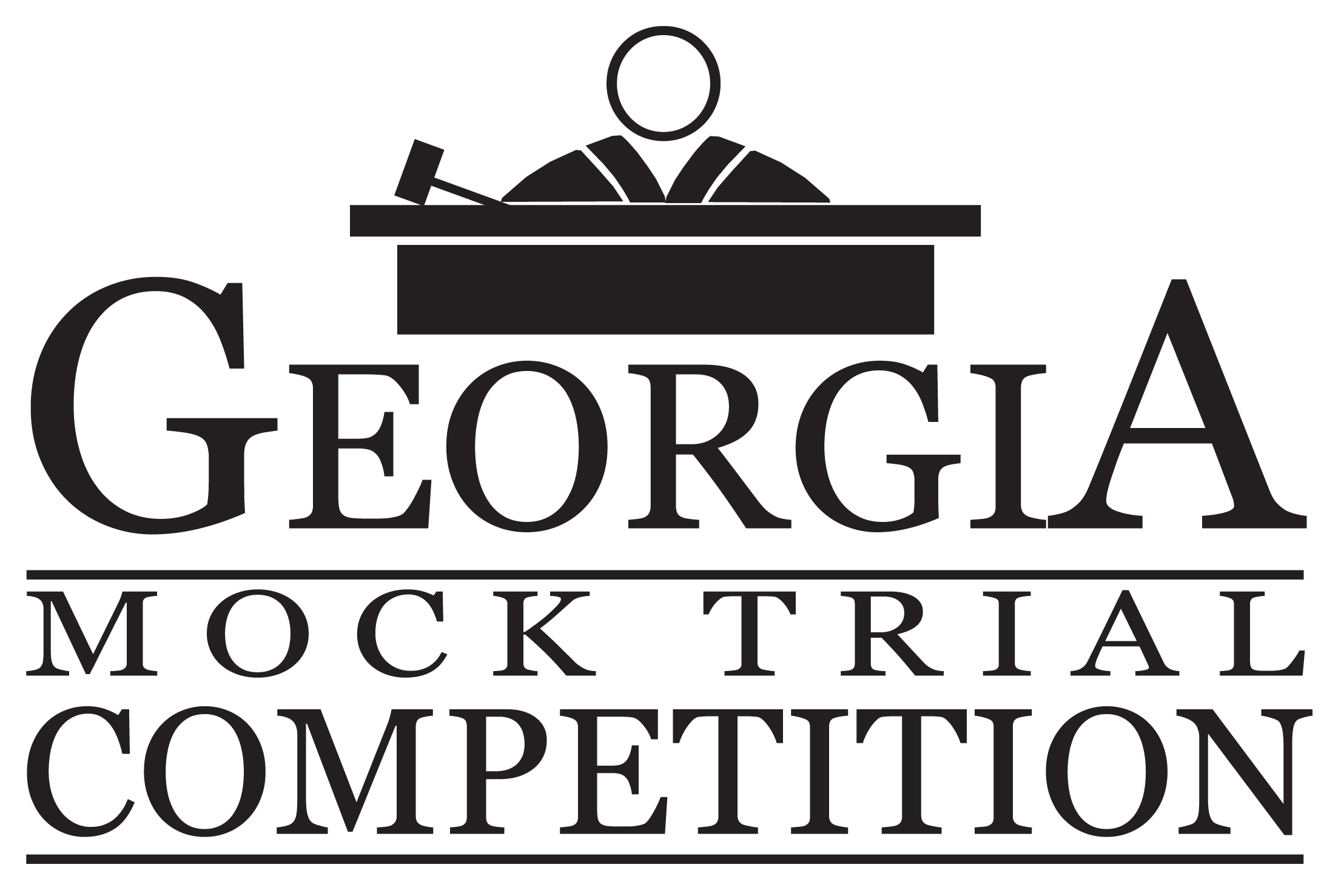


Mission Statement
The Georgia Mock Trial Competition helps students gain an understanding of the legal system by providing opportunities for school teams to participate in academic competitions where players assume attorney and witness roles in a court case. Lawyers coach students in developing questioning, critical thinking and oral advocacy skills.
Vision Statement
The Georgia Mock Trial Competition will impact participating students by improving their proficiency in such basic skills as listening, speaking, reading, and reasoning. The program will also foster cooperation among diverse groups of young people while promoting better communication and collaboration between the educational and legal communities.
Code of Ethical Conduct
Each participant in the program must agree to and abide by the Code of Ethical Conduct (COEC). This goes to ensure that every participant understands the necessity of fair play and pledges to compete in this spirit.
Rationale
The mock trial activity has proven to be an effective and popular part of a comprehensive, law-focused program designed to provide young people with an operational understanding of the law, legal issues and the judicial process. Part of the appeal of a mock trial is the fun involved in preparing for, and participating in, a trial. Mock trials are exciting, but more importantly, they provide invaluable learning experiences.
Participation in, and analysis of, mock trials provides young people with an insider's perspective from which to learn about courtroom procedures. Mock trials help students gain a basic understanding of the legal mechanism through which society chooses to resolve many of its disputes. And while obtaining this knowledge, young people develop useful questioning, critical thinking, and oral advocacy skills, as well as significant insight into the area of law in question.
The mock trial activity also provides an opportunity to incorporate field experiences and community resource persons into the educational process. Visits to local courts will make the activity a more meaningful learning experience. Inviting judges, attorneys, and other members of the legal community to take part in the mock trial will help bridge the gap between the simulated activity and reality, and also will provide an opportunity for the resource people to share their knowledge and experience with young people. Finally, the mock trial will give participants practical knowledge about courts and trials which can be invaluable should they ever be jurors or witnesses in a real trial or principals in a legal action.
(Taken in part from Update on Law-Related Education, Winter, 1978. Update is an American Bar Association publication.)
Goals
Benefits of the mock trial program extend beyond the rewards of competing against one's peers or winning a round of competition. The impact of the program is measured by successfully attaining the following objectives:
Education of young people is the primary goal of the mock trial program. Healthy competition helps to achieve this goal. However, teacher coaches are reminded of their responsibility to keep the competitive spirit at a reasonable level. The reality of the adversary system is that one party wins and the other loses, and coaches should be sure to prepare their team members to be ready to accept either outcome in a mature manner. Coaches can help prepare students for either outcome by placing the highest value on excellent preparation and presentation, rather than winning or losing the case.
Participants need to be prepared for the agony of defeat was well as how to win with class. Hurt feelings, anger, and frustration are not the objectives of the mock trials. We hope students view the event as a fun and exciting learning experience. An admonition to all team members and coaches: Lighten-up and have a good time, regardless of the competition's outcome!
© Copyright 2024 State Bar of Georgia

